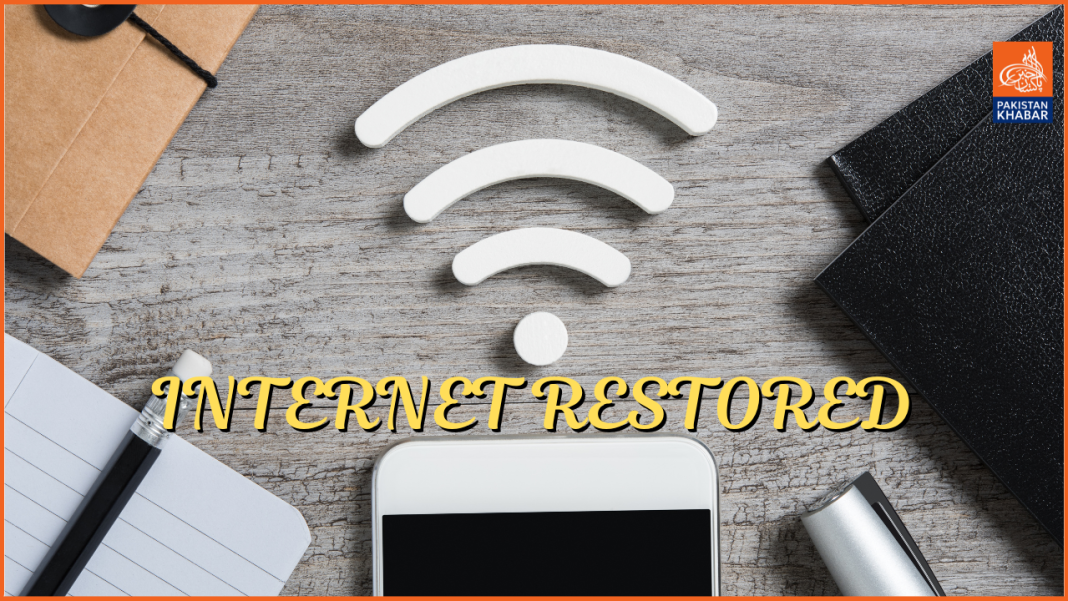Internet services have been partially restored in Islamabad and Rawalpindi following the end of the Pakistan Tehreek-e-Insaf (PTI) protest in the federal capital, which had led to a significant government response. The suspension of internet services, which lasted for two days, was implemented by the Interior Ministry as part of measures to manage the political unrest. While services are now returning to normal, users continue to experience intermittent issues, especially with the functionality of social media apps.
As authorities work to return the region to normalcy, they have begun dismantling containers that had been placed along key routes in the twin cities. Major roads that had been blocked, including the Faizabad Flyover, Murree Road, and Faizabad Interchange, are now open to traffic, marking the gradual easing of restrictions that had been in place for several days.
In addition to the reopening of local roads, the major motorways linking Islamabad to other cities are also accessible again. These include the M1 (Islamabad to Lahore), M2 (Sialkot to Lahore), M3, M4, M5, and the Multan-Sukkur Motorway, all of which had been closed for an extended period.
Interior Minister Mohsin Naqvi visited the affected areas between D-Chowk and Khyber Plaza, where he met with law enforcement personnel and commended their efforts and bravery throughout the operation. His visit underscored the government’s resolve to maintain law and order during the protest and subsequent crackdown.
With the situation gradually returning to normal, authorities are focused on stabilizing security and ensuring the smooth functioning of daily life in the twin cities. The impact of these recent disruptions continues to resonate, particularly in terms of security and communication infrastructure.




